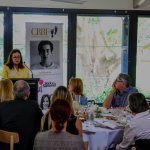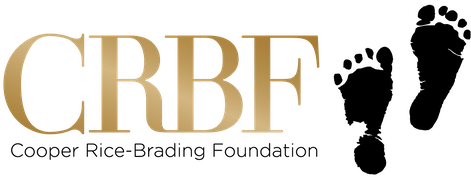Fergus Mculla was a very special young man to many, staging a courageous battle with rhabdomyosarcoma, which tragically ended in August of 2021.
The team at CRBF formed a very special bond with Fergus and his remarkable family over past years, and as a result, many of us witnessed first-hand, the resilience and positivity Fergus showed throughout his treatment . No matter what life threw at him, his beautiful smile was never far away.
No matter what life threw at him, his beautiful smile was never far away. CRBF is delighted to announce the Fergus McCulla Psychological Support & Wellness Programme will be officially launched this month, and will be free of charge for all patients and families. Please press the banner to read more.
Fergus was also a voice for change whilst he underwent treatment, especially concerned about the level of formal support offered from the point of diagnosis and beyond. His courage was always evident in his ability to share his sarcoma journey on social media, helping others navigating the same pathway, and in doing so, providing support and a shoulder for many. Press to read more of this remarkable young man and the new CRBF programme named in his honour.
When it became time to name our psychological support programme, it was an obvious choice that it should bear Fergus’ name.
CRBF is delighted to announce the Fergus McCulla Psychological Support & Wellness Programme will be officially launched this month, and will be free of charge for all patients and families.
This programme will provide an additional layer to our peer support programme, and will be fully supervised by two experienced clinicians.
Please email Keith Cox, Director Patient Support at Keith.Cox@CRBF.org.au or Tania Rice-Brading Patient Support Coordinator at Taniarb@crbf.org.au should you wish to discuss or register for this programme.
Please see below a transcript of the speech delivered at the launch of the programme on Wednesday 1st December, at the Collaboration: The key to unlocking advancements in sarcoma Breakfast – delivered by Clinical Psychologist, Louise Hird.

‘My journey into the traumatic world of Sarcoma began as unexpectedly as everyone’s does. My son, George, who you many of you heard speak at the CRBF corporate breakfast a couple of years ago, was very good friends with Cooper Rice Brading. Cooper was great fun, had a wicked smile, played in the same cricket team as my son and was an avid Swans fan – he had a big future but his future also included Sarcoma. His diagnosis came out of the blue, was sudden and we all thought he would be fine. He wasn’t. We knew nothing about Sarcoma – I am not sure I had even heard of it. I now know that Cooper’s story is typical of many young Sarcoma sufferers.
My son’s relationship with Cooper and involvement with the CRBF as an ambassador for the Foundation, kept myself and my family connected to Tania, Colin and Mitch and the CRBF. Through that relationship, I have learnt a great deal about the perils of the diagnosis. More recently a dear friend who is in this room today, has been diagnosed and I have watched him and his family struggle with the same uncertainty, confusion and fear. Not only is very little known and very few treatments available but there is very little support for the individuals and their families diagnosed with sarcoma.
I am a Clinical Psychologist working in private practice. I am very aware of the lack of funding and access generally to emotional and psychological support services in the community and how difficult it can be to navigate mental health services and find access to the right service or provider. I have learnt that Sarcoma patients and their families have very particular needs. They often feel very isolated as they don’t have the same access to support groups as other Cancer sufferers. The support that they need is simply not available. Sarcoma is extremely rare and that means that a diagnosis is extremely lonely and limited research has been done in relation to the specific needs of people diagnosed with Sarcoma. This is changing thanks to our colleagues at Sock it to Sarcoma in WA.
I spoke at length with CRBF about this difficulty and began to work with my colleague Dr Lahvinya Kulaendra, a practicing psychiatrist, to develop a program that might address the very apparent gap in services available to Sarcoma sufferers. Lahvinya and I have taught together on a number of programs working to develop psychological skills in young medical students, psychologists and psychiatrists. This project presented us with some unique challenges, these were not a group of people identified because of mental health difficulties but they were a group of people very much in need of support. There is very little funding available to research and understand the scope of the unmet needs or to even clearly identify what the needs of Sarcoma patients are? And how could we fund such a service? By tapping into psychology students hoping to apply for Clinical Masters programs we found a group of people with the right skills and motivation to offer their services voluntarily. We approached the CRBF to financially support the development and delivery of a training program for the volunteers and they agreed. We selected our first group of volunteers who are all here – Merran Cunningham, Mitch Rice Brading, Nathan Salgo and Henry Foley – and so this new project began to take shape.
So many people have contributed their time voluntarily to make this new program possible. Without this collaboration and without volunteers it could never have happened.
Many thanks to Keith Cox, clinical nurse specialist whose deep knowledge and understanding of the nature and unpredicatable trajectory of Sarcoma and of the patient’s needs was invaluable; to Richard Boyle , sarcoma specialist and orthopeadic surgeon, for taking the time to teach us about the pathology, etiology and complex treatment and management of the illness, to Mandy Basson from SockItToSarcoma! who briefed us on the huge deficits in the emotional and psychological support offered to the patient’s and their families through the research her team is doing in WA.
Finally, to the patients and families who joined us at the invaluable and at times heartbreaking round table discussions. Here the patient journey was relayed, to help us understand the deficit of information available, the limited treatment options, the loneliness and the isolation of being diagnosed with a rare cancer where there is little funding and support groups are limited. And lastly many thanks to our volunteers for the amount of time they have given to this program and for their patience as the projected developed and changed.
I am very excited that we are able to launch the Fergus McCulla Psychological Support and Wellbeing Programme today. There is no doubt that there is great need in the Sarcoma community for such a program and I am very honored to have been part of this collaborative venture. I hope that with further collaboration and funding we will be able to expand not only our medical understanding of the pathology, management and complexity of sarcoma treatment but also to offer individuals with Sarcoma support as they confront their diagnosis, treatments and suffering.’
